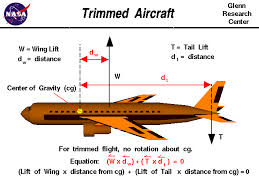trim
英 [trɪm]
美 [trɪm]
- vt. 修剪;整理;装点
- vi. 削减
- n. 修剪;整齐;情形
- adj. 整齐的
- n. (Trim)人名;(意)特里姆
使用频率:

中文词源
trim 修剪,修整,装饰
来自古英语 trymian,使整齐,安排,加强,来自 Proto-Germanic*trum,坚固的,固定的,PIE*deru, 稳定的,稳固的,词源同 tree,true.引申词义修剪树枝,修整,装饰等。
英语词源
- trim
-
trim: [16] The origins of trim are uncertain, but it may come from an unrecorded Middle English verb *trimmen ‘arrange’, a descendant of Old English trymman or trymian ‘make stronger or firmer’
- trim (v.)
- mid-15c., probably from Old English trymian, trymman "strengthen, fortify, confirm; comfort; incite; set in order, arrange, prepare, make ready; become strong," from trum "strong, stable," from Proto-Germanic *trum-, from PIE *dru-mo-, suffixed form of *deru- "to be firm, solid, steadfast" (see true). Examples in Middle English are wanting.
Original sense is preserved in nautical phrase in fighting trim (see trim (n.)); where the verb meant "distribute the load of a ship so she floats on an even keel" (1570s). Meaning "make neat by cutting" is first recorded 1520s; that of "decorate, adorn" is from 1540s. Sense of "reduce" is attested from 1966. - trim (n.)
- "state of being prepared," 1580s, nautical jargon, "fit for sailing," from trim (v.). From 1570s as "ornament, decoration;" the meaning "visible woodwork of a house" is recorded from 1884; sense of "ornamental additions to an automobile" is from 1922. Slang meaning "a woman regarded as a sex object" is attested from 1955, American English.
- trim (adj.)
- c. 1500, "neatly or smartly dressed," probably ultimately from trim (v.) or from related Old English trum "firm, fixed, secure, strong, sound, vigorous, active." Related: Trimly; trimness.
权威例句
- 1. He is already getting in trim for the big day.
- 他已经在为那个重要的日子调整状态了。
- 2. Jordan promised to trim the city budget without cutting essential services.
- 乔丹承诺在不减少基本服务的前提下,缩减市政预算。
- 3. The driver was a trim young woman of perhaps thirty.
- 司机是个大约30岁的身材苗条的年轻女子。
- 4. Trim off the excess pastry using a sharp knife.
- 用一把快刀切去多余的饼皮。
- 5. Trim any tough or woody stalks from the asparagus.
- 剪掉芦笋上粗硬或老掉的梗子。